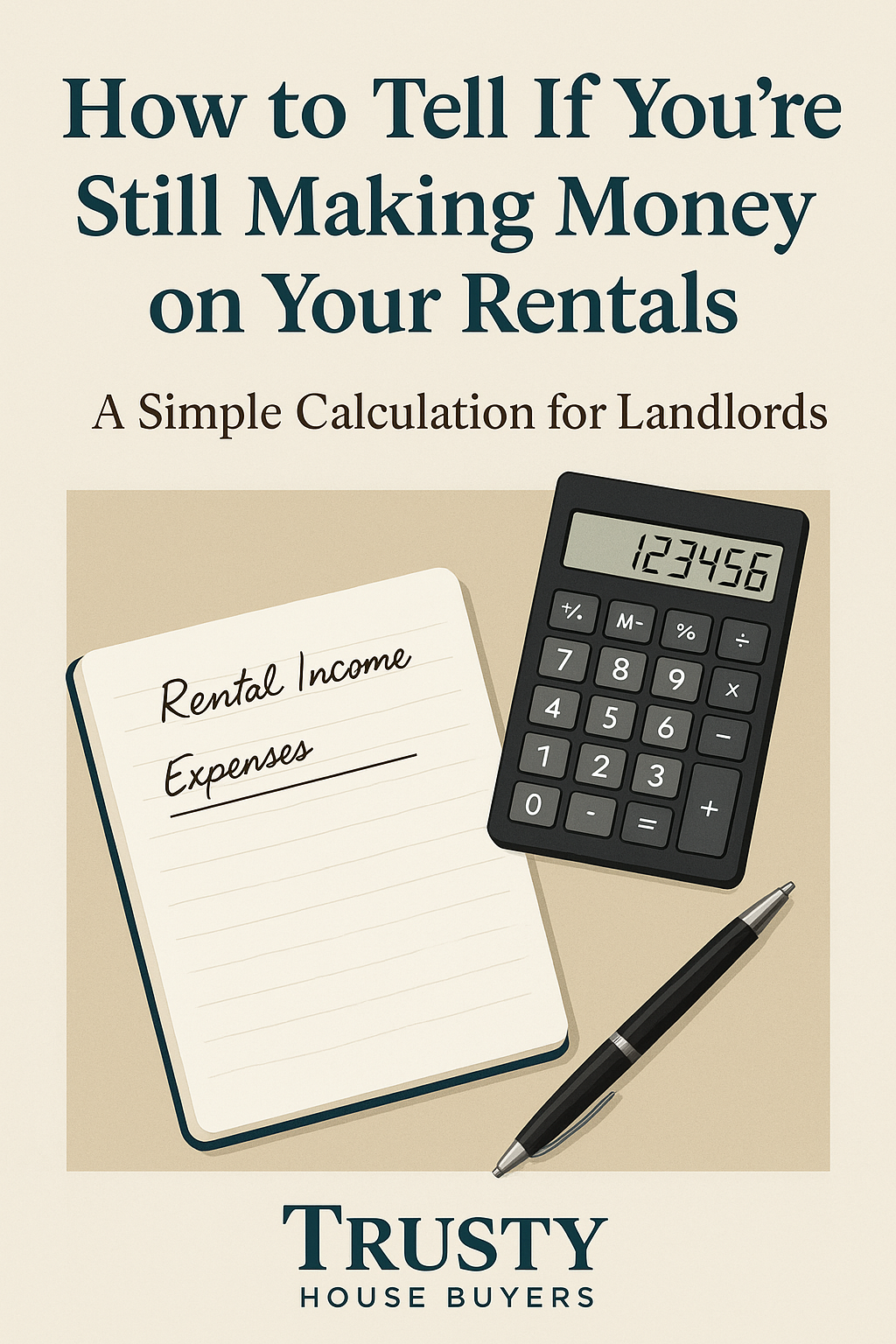Being a landlord isn't always as passive or profitable as it may seem at first. If you’re a tired landlord wondering whether your rental properties are still worth the effort, you’re not alone. Between maintenance calls, tenant headaches, vacancies, and rising expenses, it’s easy to lose track of whether your investment is still putting money in your pocket—or slowly draining it.
Here’s how to tell if you’re still making money on your rentals and what to do if you’re not.
📈 1. Start with a Clear Income vs. Expense Breakdown
This is the most important step. Sit down and do the math. Track all sources of rental income, then subtract every expense associated with the property:
- Mortgage payments
- Property taxes
- Insurance premiums
- Routine and emergency maintenance
- Repairs and replacements (roof, HVAC, etc.)
- Property management fees
- Utilities (if you’re covering any)
- Landscaping or pest control
- Vacancy losses (months without rent)
Don’t forget to factor in annual or one-off expenses like appliance replacements or legal fees. If you find that you're in the red more often than in the black, your rental may not be as profitable as you think.
⏳ 2. Consider Your Time Investment
Being a landlord can feel like a part-time job—or even a full-time one—especially if you're self-managing. Are you constantly responding to tenant complaints, coordinating repairs, or chasing late rent?
Your time has value. Break down the hours you spend each month and divide your net income by those hours. Are you effectively paying yourself minimum wage or less? If the reward doesn’t match the time and stress, it may be time to reevaluate whether this is still the right path.
🏡 3. Look at Long-Term Equity Growth vs. Cash Flow
Some landlords hold onto properties for long-term equity appreciation, even if the property isn’t cash flowing. In a hot market, this strategy can pay off. But in areas with stagnant or declining values, relying on appreciation alone becomes risky.
Use tools like recent comparable sales or property value estimates to assess whether your equity is growing. If your cash flow is weak and property value isn't increasing, you may be holding a losing investment.
💰 4. Compare Against Other Investment Opportunities
Is your rental generating a 4% return after expenses? That might sound okay—until you consider that some low-risk investments like index funds, CDs, or REITs may offer similar or better returns with zero tenant calls or repair bills.
If you're doing all the work but seeing lower returns than other options, it may be a sign that your capital could be better used elsewhere.
🤦 5. Evaluate Stress vs. Reward
Profitability isn’t just about numbers. Stress is a hidden cost. Are you constantly frustrated, overwhelmed, or worried about the next tenant issue? Many landlords underestimate the toll landlording takes on their mental health, family time, and lifestyle.
Even a profitable property might not be worth it if the emotional strain outweighs the benefit. Burnout is real—and it’s okay to walk away.
📊 6. Use a Profitability Checklist
To recap, here’s a quick checklist to help you assess if you’re still making money:
Are you netting positive cash flow after all expenses?
Is the property gaining equity?
Are you spending too much time managing it?
Is the ROI better than alternative investments?
Are you experiencing more stress than reward?
If you answered "no" or “maybe” to most of these, it may be time to rethink your rental strategy.

